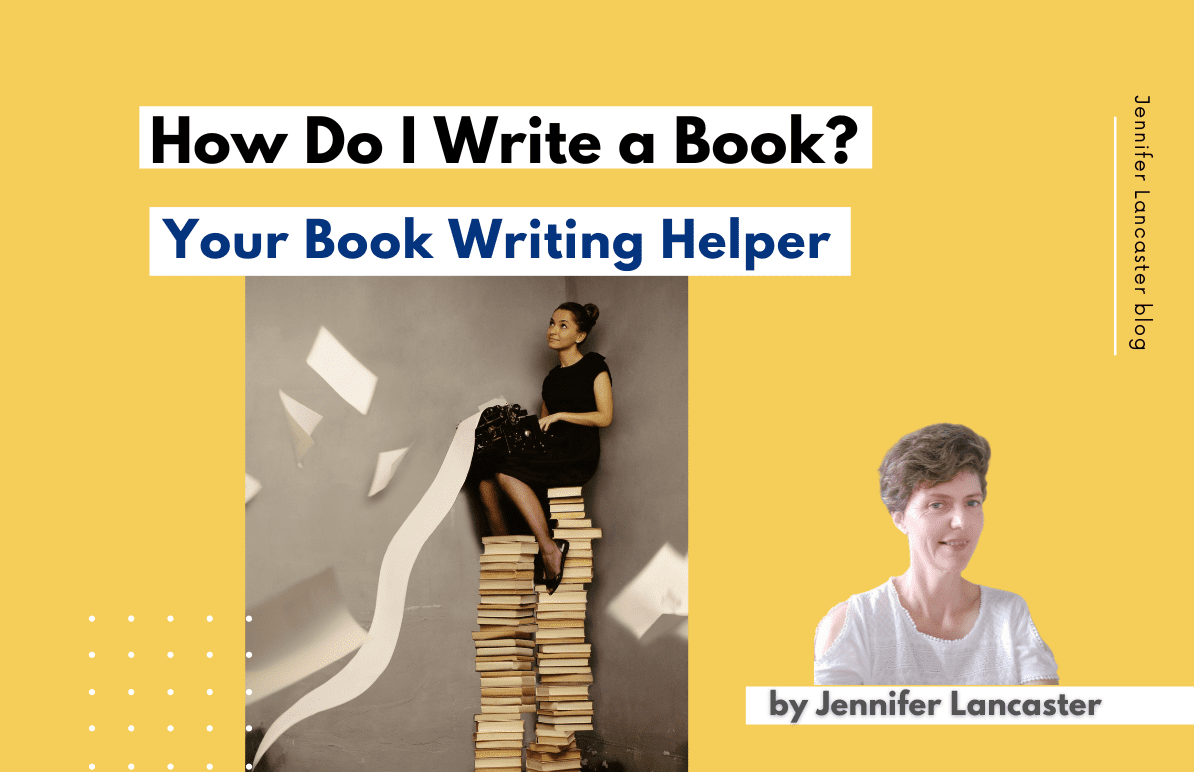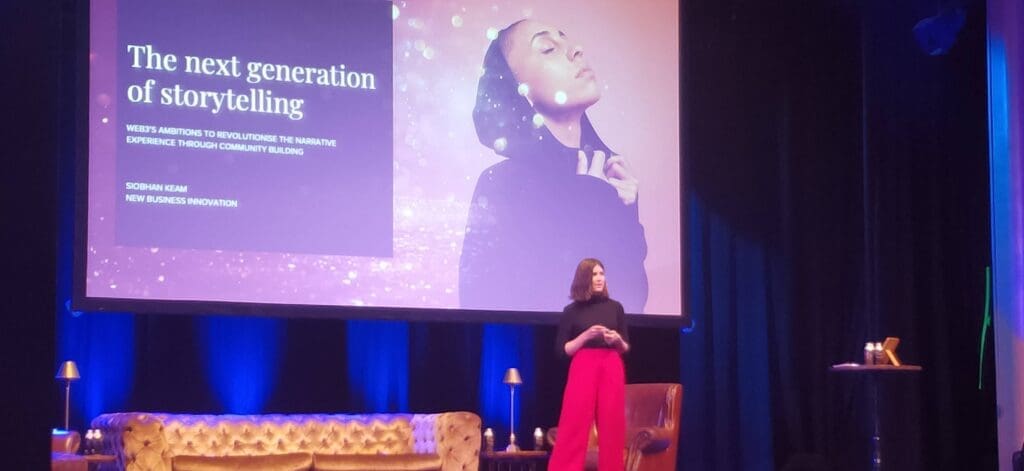This question underlies everything I do when creating books: how do I write a book that resonates with my market?
Always think about a potential market first. Also, consider the barriers and pitfalls that may stop you. (To help you, this 1,800 word guide is written by me, Jennifer, an author, book coach and editor).
Table of Contents for this Book Writing Guide
What not to do when writing a book
The first thing is not to expect yourself to always be “on fire” and writing at the same pace. Some days you’re not going to have the creative genii appear. You’re exhausted, your mother’s sick, your dog just died. Let life happen but get right back on the writing horse once the sun is out again.
Did you know, most people think they may as well “forget it” as soon as they break their diet? Writing habits are easy to break too – but with writing, you can take two days off and then get straight back to your project with excitement. You can do this!
Another thing not to do is forget to keep references of the sources you got ideas/paraphrases from. These you will need to put into your references section, with the date and where it came from.
A major thing that stops novice writers is judgement: fear of judgement on their words. With writing, like rowing, it can be improved with small strokes. Do you go out on a four person canoe and think you can row perfectly first time? No! It takes months of practise. With writing, the more you write and read it back aloud, the better you’ll get.
If it makes you feel any better, I hated my first University essay. I had trouble with the linking of ideas. EVERYONE DOES! I vowed to improve my skillset. Soon enough, my essay was highlighted in class as a great example of a solid argument… and a high distinction achieved.

How long should it take to write a book?
I find it hilarious that people think it takes a weekend to write a book. The weekend is to PLAN the outline, but the book will take longer to write well.
A fiction book might take 6 to 18 months to write, as a guess. I write how to books. The last one took me three weeks to flesh out and arrange (from posts). Whereas, the first major one took me a year to write and edit. I sat and wrote for one 5-hour sprint per week, as our baby had Daddy time.
I have heard from people that took 10 years to write a book… because they couldn’t quite get the right voice (or an editor to help). Just find an editor who can also write!
It takes as long as you let it, basically. How long do you want it to take?
How to come up with a good topic for a book?
There is a three step brainstorming technique in my Book Creation Self-Publish Course for this. Without giving out all the secrets, basically I use my brain + research.
The research on what’s trending and what’s in the news or other books informs my brain. I read books, long articles and studies on a particular topic to get a handle on it.
I also use keyword research tools to find popular topics – you can use Keywords Everywhere all year for US $10. It can be utilised at Amazon, although the source is Google. Google Trends can be utilised for judging one topic’s popularity against another.
You can also come up with a rarely used ‘category’ and ask for this category if using Kindle Direct. KDP uses categories to define the places where a book is displayed. Most categories have thousands of titles in them.
For true Amazon eBook search numbers per category, there is Kindlepreneur’s tool called Publisher Rocket. It’s US$90 once off. (We are affiliates and if you click on this link it will pay a commission to Jennifer… but you still get the same price.) However, you may not want to be so logical.
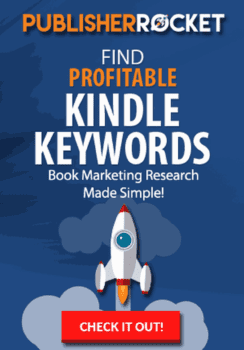
Look, most people I’ve spoken to simply want to write a book in their wheelhouse, a topic that they love. Perhaps passion for the topic is more important than going for a hot gap.
How to find a new angle
So, what we do in writer coaching is look for a gap in ANGLE. That is, what take can you come up with that’s original? (More info in How to write a book that people will enjoy reading.)
You may think this will be hard, but so few people go and read the classic self-help books, the studies, and let their brain piece it all together. Perhaps they are too busy copying others’ ideas. Shortcutting is so prevalent these days. Others don’t trust their own mind to do the magic.
Our brain does radiant thinking. So, always use a central branching ‘mind map’ rather than a list. We also use keywords, kind of like Google. If you want to recall an entire anecdote, just attach a unique key phrase from the situation and it will all come back.
How to write a book when you have Dyslexia or ADHD
Some people have an impediment to book writing that is not easy to overcome. In fact, one in ten are believed to have Dyslexia. Much of ADHD is genetic; it’s not behaviour we induce from looking at the phone. (NakedScientists.com)
I have had two clients with Dyslexia. It’s really difficult for them to see where to put commas and see errors in grammar.
I don’t worry too much about this, as my editing will fix these things. But what I do say is: you know stories, you can picture scenes; just use your conversational style to talk about the story and scene. Use your five senses when describing a situation. What did you feel? What expression did the person have? Could you say what you thought at the time? All this lets the reader into your world and lets their imagination start to work.
For those in the 5% of adults with ADHD, it’s more about grabbing the chance to write when you can.
Some of you can go deep, but it’s easy to get distracted. So close other apps, switch off the phone and notifications and sit yourself down for a set time. Don’t give up prematurely, while the bud is still forming.
Try this: write for 30-40 minutes and take a 10 minute brain break. I am going by my daughter, who must have regular breaks and managed to achieve with this strategy.
Those with ADHD might find late afternoon or evening is best for writing. This tip comes straight from an expert on the matter. If you want real information – steer clear of the spruikers and go to NakedScientists.com podcast
What to do if you suffer from distractions!
For everyone else, writing in 45 minute blocks are ideal. Latest research on productivity says those with a 17 minute break every hour were the most productive, but I find I only need 5 minutes off. That’s looking out the window – no PHONES! (Source: Stress-Free Productivity, Ali Abdaal, 2023).
How long should I spend editing before hiring an editor?
Well, you should not get sick and tired of your book from editing it. That’s not the goal! Try to go through your manuscript objectively (after a few days’ break) at a high level. Think about:
Point of view – does the point of view jump between I, you, and we? Using ‘you’ and ‘we’ can conflict… although at times it might be necessary to include both so as not to ostracise the reader, e.g., if talking about mental health. Try not to use both perspectives in the same paragraph – and never in the same sentence.
Some new book authors use AI to write with. However, I just reviewed the problems of using ChatGPT and keeping the point of view and voice right. ChatGPT likes to use “they” and “individuals”, which is a no-no in how-to or self-help book writing.
Creativity – in the Introduction, does it start off with something surprising, intriguing or an anecdote that pulls the reader in?
Originality – are your examples to make each point unique? Put aside that tired old story of icicles changing with harsh words in the freezer (by the Japanese pseudo scientist). It’s time to find those rare gems, and often they come from you.
Structure – here comes the hard part. Are the chapter lengths similar? Does it flow from a basic overview of the topic (noting any commonly misconstrued things) to more in-depth comments?
Should chapter 6 go with chapter 2 because they are quite similar in nature? Have you repeated a fact?
If you don’t know, this is where your friendly editor can help you with a Developmental Review (Manuscript Assessment). For my service, this extensive report is from $300 to $500 and then you work on the manuscript some more before the next stage.
What editing step comes after Structure?
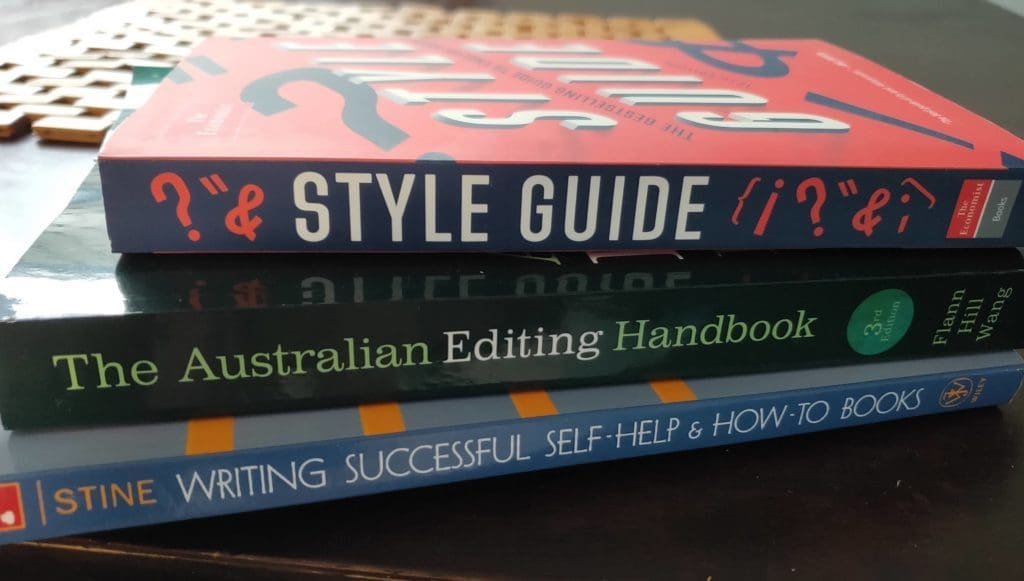
After you get your nonfiction book structure shipshape, then you need a copyedit. Trained journalists tend to do their own, but even for me it’s a risk. With my Creative Ways with Money book, I employed my daughter to do the copyedit stage one and a writer friend to beta read.
The reason is, someone else does not know what you do – and can pick up things you’ve missed – such as acronyms that weren’t clear.
Over 20 authors have come for my copy editing and I have always helped to get their words out of a tangle. Those paragraphs must flow, and so I call this work “line editing”. In Australia, the iPEd (Institution of Professional Editors) only recognise “copy editing” for this work. But potato, po-tar-to… as long as your editor knows their language and doesn’t skip things, all good.
See my free Guide to Unlocking Copy Editing Secrets.
Proofreading
The last stage is proofreading of the designed book, including back cover.
Before distribution, authors order a “print proof” to be sent to their house. I make sure to read the print proof very carefully – sticky noting and circling any errors. Proofreading involves checking of headers, footers, internal cross references and check for any text cut-offs.
I allow three weeks to do this process. It takes two-three days for your document upload to go through at IngramSpark, then wait for the proof (at least 7 days). Then fix errors (or get designer to) – ergo, two weeks gone. Then also allow another 10 days to make another proof.
How do I write a book with help?
For those of you writing a non-fiction book who need help and support along the way, I have a book coaching program (Establish book development). If unsure, you can try out your idea or problem with me before deciding on the six-month or 12-month program. How best to do this?
Book my $49 strategy session, and get a reflection on your book idea or personal brand. Book idea: help with which book idea that aligns with your business/career, with you, but also connects with particular others.
Or, discover how to establish yourself online and create a buzz with this same intro offer.
Creating a book that’s on point and on target? Then you may be interested in my online course.
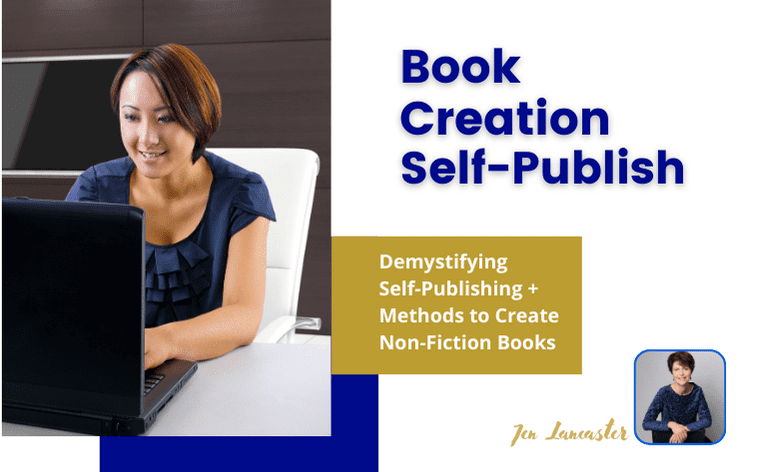
More info about the Book Creation course
Many Australians in business would like to put all their challenges and learnings into a book, but they don’t quite know how to do this.
Even outlining and planning a book is a foreign affair, and fair enough. Fortunately, Business Author Academy’s Jennifer Lancaster has put the lessons gleaned during her 12 years of book publishing into a new course.
Book Creation Self-Publish covers many elements and tutorials in these modules:
- Why write a book? (for business or career)
- Learn the truth about self-publishing
- Researching and writing a book
- Book production – design tips
- Administration of print on demand – including Kindle Direct and IngramSpark
- Know the legal aspects – plagiarism, copyright, defamation
- Preparing for launch
There is a big focus in the course on being ready for launch day and taking action. Students start by filling in a ‘book business plan’. This is particularly because many of the authors Jennifer talked to admitted not being ready for the marketing, media and budgeting part of publishing. It’s also because planning creates a more successful launch — including post-launch sales.
